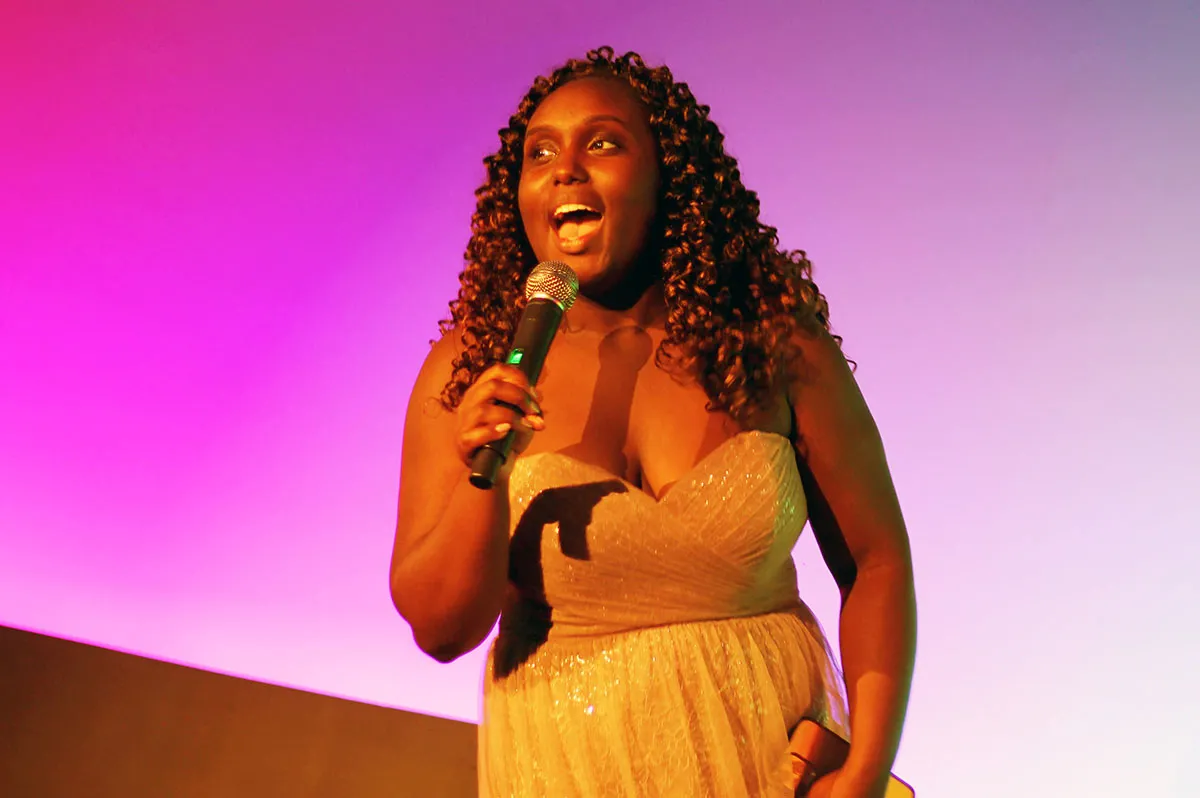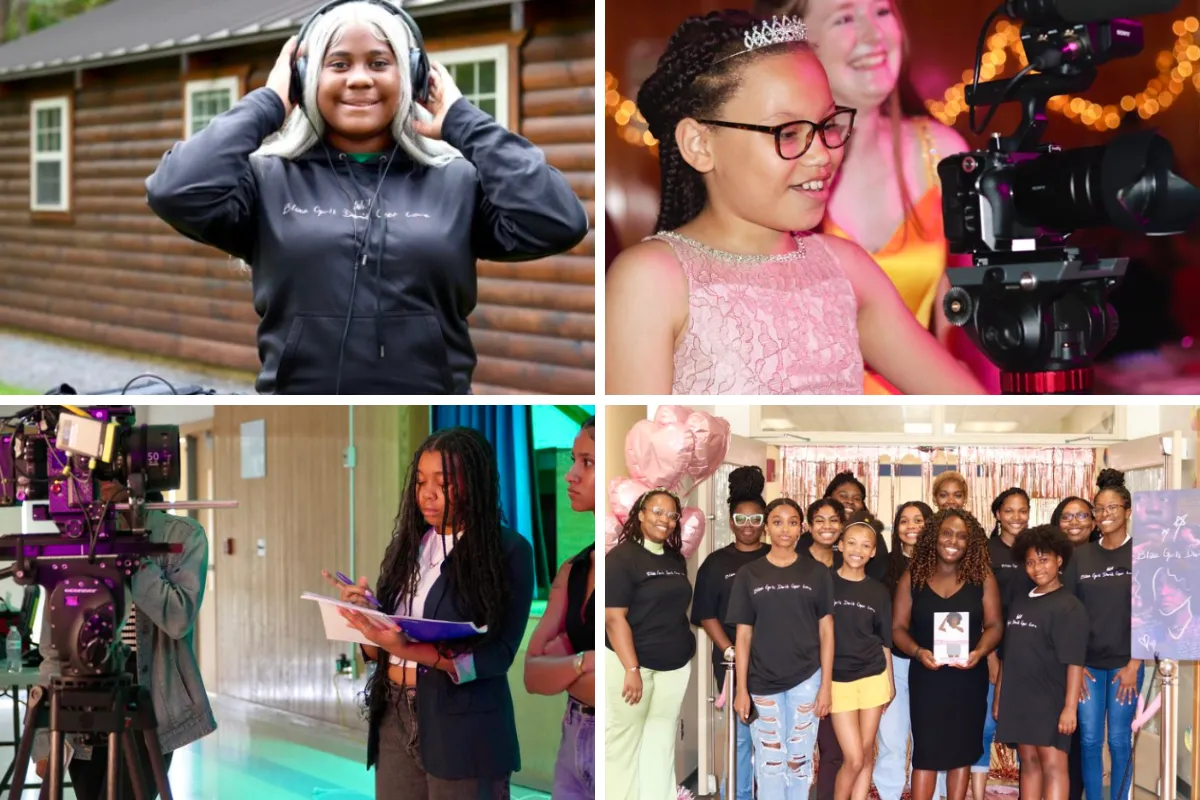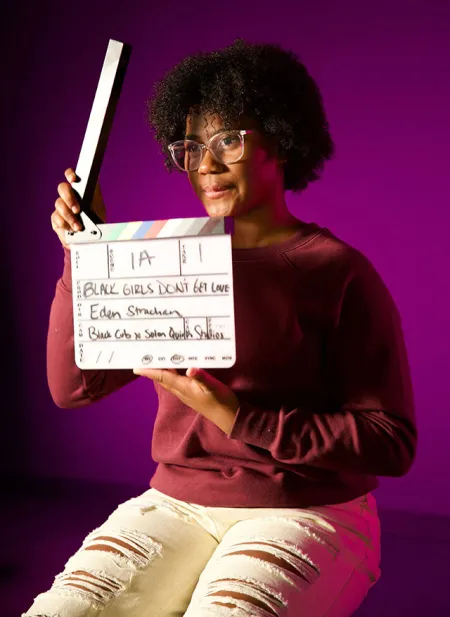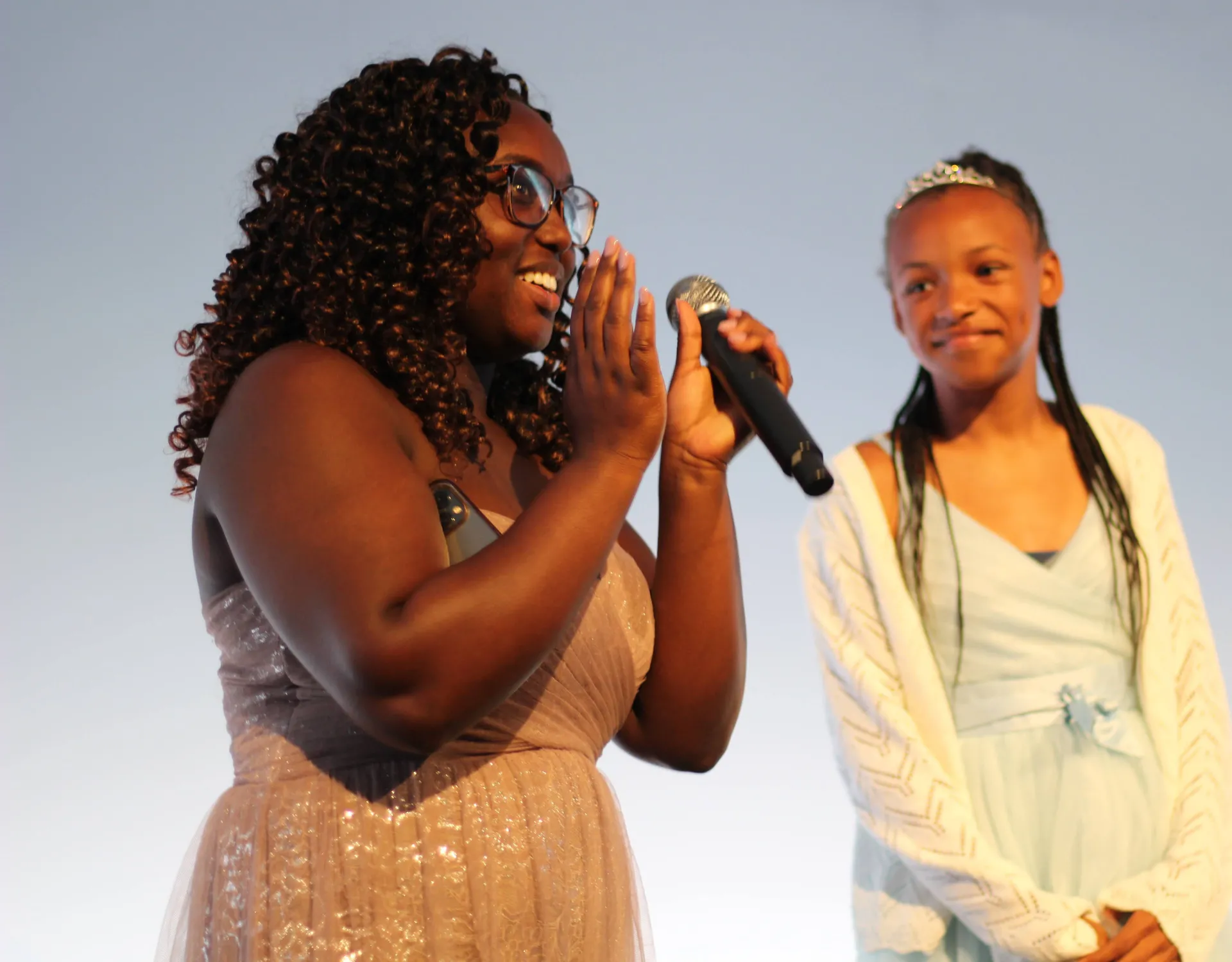Eden Strachan sat down with Charles McKenzie for an extended interview on her “Black Girls Don’t Get Love” project and the events surrounding it.
Q: Could you feel the support in the room at the premiere?
A: Public officials were there like a local senator, deputy mayor and some of our funders. Seeing that they would be willing to show up for something like this really validates the work. It also helps connect to more resources and funding. Yes, they physically showed up, but then also they put their resources and connections behind what we're doing, so it's a really beautiful thing.
Q: After the premiere, a girl from one of the movies rushed up to you and she was sobbing and shaking, boiling over with emotions. She couldn’t leave without sharing a moment with you and letting you know how she felt.
A: It’s been such a blessing to get to know her and her mother over the last year doing this work. As a nonprofit leader trying to do work that is actually making a tangible impact, that buy-in from the family is really huge because they show up and they’re fully committed. That particular girl is a wonderful person and for her to be acknowledged and have her personhood celebrated is why we do this. It was emotional for me, and as she talked to me, I was just like, “This is why we do it.” That was a really special moment for me. The same girl also went on the camping trip with us to Allegheny State Park.
Q: What is the camping trip like?
A: We go on an all-expense-paid trip four hours away, paid for by the Ladder City Outdoors Program, which is trying to bridge the access between underrepresented kids and the outdoors. We had this incredible experience of bringing a group of girls and parents out there.
Q: You describe yourself as a journalist, which certainly makes sense, but it seems like there’s also a lot of slashes or asterisks needed. How do you describe what it is that you do?
A: That’s so funny. I’m kind of a little bit of everything because I think that especially in today’s society and today’s economy, you can’t really afford not to be. You have to be creative and innovative and pull skills from different places to accomplish a goal.
Q: But it’s not a “movement”?
A: No. I was able to watch some of the reels that people were posting afterwards of themselves walking through the streamers, and they were like, “This is magical!” and it was validating to hear that and to know people felt this coming-of-age experience when they enter our space. And so I think the difference between saying “a movement” and saying “a coming-of-age brand” is really the difference between fighting against problems that we want to change versus creating a culture that is really making people feel welcomed and celebrated, and inevitably, in turn, it gets people to get behind it, not because it’s something that we have to rally for, but because you almost don’t want to miss out on the experience.
It’s that experiential part that differentiates what we’re doing from what a lot of what other people do. And so, yes, it’s a lot and it’s crazy, but I really wouldn’t have it any other way. Because when you experience something that compels you, it makes you feel different. You walk away with a memory that is more impactful than if I just pull everyone in a room and have them watch a decent project. I want them to feel the project. I want them to walk away and say that we can’t not have this again because it was so impactful.
Q: You obviously have tremendous energy, talent and skills that you could take to a corporation or a nonprofit and not have to constantly raise money and find volunteers. That would be easier, but it seems you’ve chosen a harder path.
A: I mean, if people want to pay me big bucks for what I do, they can feel free to give me a ring. I’m not opposed to it. It’s just that, for this project, the time is right. Our social climate has room for what we’re trying to do, and there’s a need in the market. But also, at a human level, people need what we’re doing. Everyone says that they want to leave a lasting impact before they leave this Earth. That’s what Black Girls Don’t Get Love is for me.
Yeah, it is hard work. It is back-breaking work. I’m very fortunate to have a lot of people who make me look good. They help me set up, clean up, bring in crazy contraptions, rent big trucks, and do crazy things because they believe in the work. I always want to acknowledge them and their contributions because it makes it all possible.
Q: Even with volunteers, the cost must add up?
A: I want to emphasize that this work cannot be sustainable if people don’t fund it and so my call to action is always very clear for people: we want to do this, but we can’t do it if people don’t back it with investments or sponsorships or different types of things. We’re also actively seeking new opportunities to expand this nationally, so collaborations with organizations that align with that mission so we can have our program in different places and actually make that impact beyond where I can reach myself. I can only do so much in Syracuse by myself, and so having those partners to provide that support would be really valuable.
Q: How did you know that this was really reaching people in ways that were both deep and broad?
A: Well, I think it happens at every single event that we do because the experience is so different. We had our first Black Girls Don’t Get Love prom in July 2022, which was like a formal event to celebrate girls of color. We had different partners chip in thousands of dollars of sponsorships and free prom dresses to give the participants this night to remember. Seeing and experiencing the prom come to life after just a huge run of fundraising and seeing the impact and hearing single moms say, “We wouldn’t usually be able to afford to do something like this for our kids.” It was a turning point because I think it let people visualize what the Black Girls Don’t Get Love story actually meant outside of the pages of a book.
And then we did a slumber party on Valentine’s Day, a day when a lot of people feel left out or don’t feel beautiful. Cosmetology partners from BOCES pampered these girls who were in pajamas and slippers on a full pink carpet with a roses and tiara experience. Those moments are just the reinforcement, if you will, and then when the five-year-olds come up to me and say that this the best day of their lives, that feels like winning an Academy Award. So different events are really special in different ways, but the prom was like a turning point for me that, “Yes, you can do this, and yes, people will support you.”
Q: The bonds that participants form must be a huge additional reward, both for them and for you?
A: I refuse to let anyone come in and just be in the corner. If you don’t know someone, you will know someone before you leave, so it creates a culture of sisterhood amongst the girls that are participating. That community that’s built is always reinforcing for me.
Q: I know you don’t say it’s a “movement,” but any one of your training sessions or events could be a national trend. Any of them would be worth pursuing. Why branch out into so many directions?
A: Some people might think that these events are random, but they’re not. It’s all intentional. We want Black girls to be represented in different industries and in different opportunities, and yes, every opportunity might present something cool, but is it the right opportunity for us? For example, the Ladders to the Outdoors collaboration came as a surprise opportunity, but our mission will always be to change the way Black women and girls are perceived. And if we think broadly about that, it doesn’t just have to be media. Our story and our experiences will always be based on our book, of course, but we should be also saying, “Okay, how are Black girls perceived in nature and in the outdoors? And how can we bridge that gap in representation?” And “How can we partner with people that share similar values?”
Now, there are professors who are asking me to speak in their class about independent marketing and advertising because the strategy that we have used is so unconventional.
So the team is also very valuable in guiding us and making sure that we’re staying true to the mission because we all need accountability, especially when we’re trying to grow something so big. We have amazing support. Everyone from our supporters, to the crew, to the instructors and to all of our volunteers, they have been instrumental in all of this. I’m so blessed to be able to do this.



